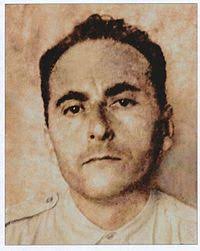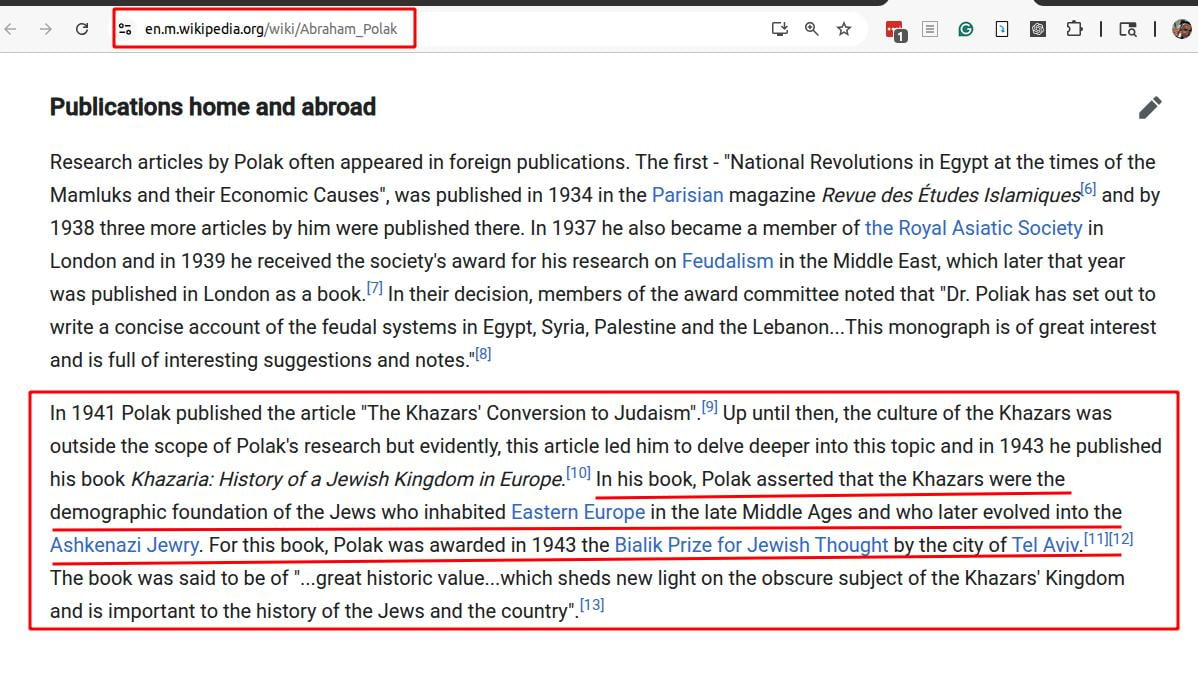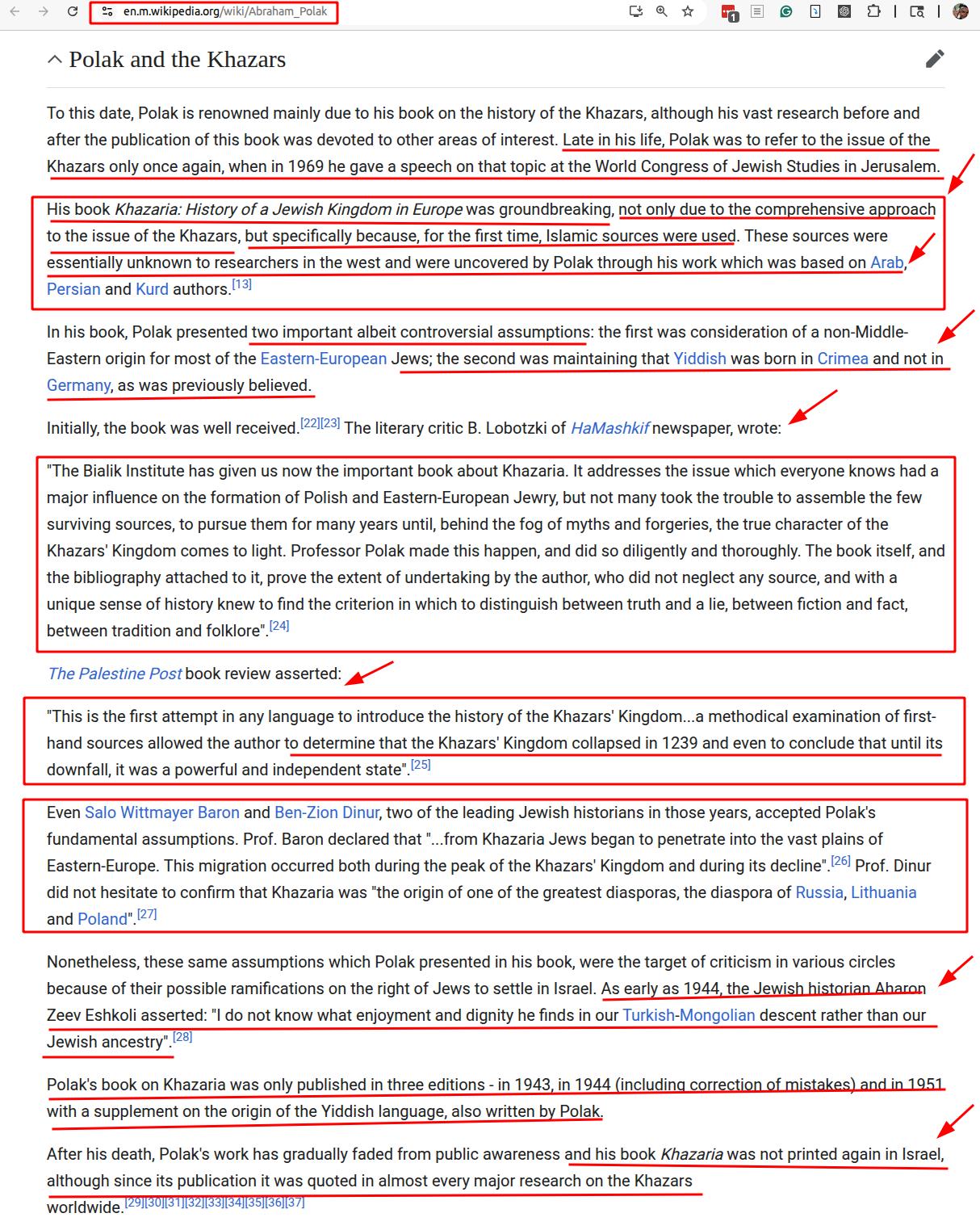Professor Shlomo Sand, a well-known historian from Tel Aviv University, has suggested that the history of the Khazars was once an "open secret" in Palestine and early Israel until the Six-Day War. While this may seem like an exaggeration, historical evidence supports the idea that this topic was a subject of serious academic study within Israel, and even before the Nakba of 1948.
The first major scientific investigation into the Khazars and their potential connection to European Jewry was conducted not at a European institution, but at Tel Aviv University by historian Professor Abraham Polak. His work, "Khazaria: The History of a Jewish Kingdom in Europe," broke new ground by drawing on Arab, Turkic, and Kurdish sources, making him a pioneer in the field. Several key points about Polak's work are notable:
 Why do we keep running into Jews, who were tested to be 100% Ashkenazi, but have clear Asian Tatari Turkic features?
Why do we keep running into Jews, who were tested to be 100% Ashkenazi, but have clear Asian Tatari Turkic features?- Suppression and Revival: Polak's book, first published in 1943, was reprinted three times, with the final Israeli printing in 1951. However, the topic was later suppressed despite the book being widely cited by scholars.
- Widespread Acclaim: The book received significant praise from Jewish communities worldwide at the time of its publication.
- The Yiddish Connection: Polak's research, which aligns with findings from other scholars like Eron Elhaik, suggests that Yiddish may have initially developed in Crimea, not Germany, challenging a widely held belief about its origins.
Polak continued to discuss the topic until he died in 1969, and his research remains a crucial, though often overlooked, contribution to the study of the Khazar kingdom and its possible impact on the formation of European Jewish populations.






Post Your Comment
*It should be NOTED that your email address won't be shared, and all communications between members will be routed via the website's mail server.